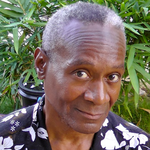0

The Mysterious Schwa /Ə/
7 年前The Mysterious Schwa /Ə/
English spelling is not the best guide to English pronunciation. Spoken English frequently uses a vowel sound called schwa that few people are taught to be aware of; in fact, Schwa is the most prevalent sound in the English language.
The Schwa sound is represented by an upside down e symbol that looks like — ǝ.
Schwa is a weak, unstressed sound and occurs in many words. Articles, such as (the, a) and prepositions, such as (along, aboard, about) are frequently pronounced using the schwa sound. If you want to make your English more accurate and sound more natural, then read on for The Mysterious Schwa basics.
Rhythm is the Key
English is stress-timed. In an English sentence, the words that communicate the most important parts of a message (the nouns, main verbs, adjectives and adverbs) are stressed. Function words (auxiliary verbs, pronouns, articles, conjunctions and prepositions) are not usually stressed, so as to maintain a regular rhythm in the language. For the same reason, words of more than one syllable have both stressed (strong) and unstressed (weak) syllables. For example, in the word ba- naˊ-na, the second syllable is stressed and, consequently, louder.
Understanding Unstressed Vowels
Unstressed words and syllables are usually said faster and at a lower volume than stressed words or syllables. Thus, the vowel sound in an unstressed word or syllable can lose its purity. Schwa is the most common vowel sound in the English language because most unstressed vowels are pronounced as a schwa.
Some languages like French, Italian, Spanish, Brazilian Portuguese, and Mandarin Chinese are syllable-timed languages where each syllable takes roughly the same amount of time. English is a stress-timed language, meaning that the rhythmic impression is based on the regular timing of stress peaks, not syllables.
To speed up your speaking in Spanish, you shorten the length of all the syllables. To speed up in English, you close the distance between stressed syllables. How? By greatly reducing the unstressed syllables. This is where the The Mysterious Schwa comes in, the vowel sound most unstressed syllables tend to get is, The Mysterious Schwa.
Every WRITTEN VOWEL (and some unwritten) CAN BE A SPOKEN SCHWA (or unspoken)
Here are examples of the vowel sounds a, e ,I, o, u, and y replaced with the schwa sound: [a] amazing (ǝ-MA-zing), [e] tenacious (tǝ-NA-cious), [i] replicate (RE-plǝ-cate), [o] percolate (PER-cǝ-late), [u] supply (sǝ –PLY), [y] syringe (sǝ-RINGE), and [unwritten] rhythm (ri-TH-ǝm).
Americans tend to delete a schwa when it appears in a midword syllable that comes after the stressed syllable. sep(ǝ)rate (as an adjective), choc(ǝ)late, cam(ǝ)ra and elab(ǝ)rate (as an adjective). The third syllable in these examples are barely articulated if they are articulated at all. This is called schwa syncope (or schwa deletion).
At the beginning of words - paráde p[a]ráde, Torónto T[o]rónto políce p[o]líce tomórrow t[o]mórrow Canádian C[a]nádian potáto p[o]táto
Before a stress less syllable ópera óp[e]ra géneral gén[e]ral chócolate chóc[o]late réspiratòry résp[i]ratòry
ENGLISH SOMETIMES TENDS TO STICK IN EXTRA SCHWA SYLLABLES
Sometimes, a schwa helps break up difficult consonant clusters. This process, called schwa epenthesis, can turn realtor into real-ǝ-tor, athlete into ath-ǝ-lete, nuclear into nuc-yǝ-ler, and film into fi-lǝm.
Well, there is a brief introduction to The Mysterious Schwa. I suggest to all my mentees seeking to perfect their English pronunciation, to first understand the Mysterious Schwa, and next to master English consonant sounds.
Keep in mind, the 1st thing people will notice about your English, is your pronunciation.
I am Mentor Josephan
Are you ready to speak English or not!
American English Ready Set Go!
